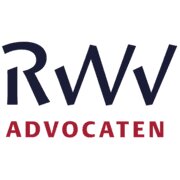Best Corporate Governance Lawyers in Leiden
Share your needs with us, get contacted by law firms.
Free. Takes 2 min.
List of the best lawyers in Leiden, Netherlands
About Corporate Governance Law in Leiden, Netherlands
Corporate governance refers to the systems, principles, and processes by which companies are directed and controlled. In Leiden, Netherlands, corporate governance law encompasses the rights and responsibilities of various stakeholders within a company, such as shareholders, directors, and management. The goal is to ensure that companies are run ethically, transparently, and in compliance with local and international regulations. Dutch corporate law is recognized for its balance between shareholder protections and management autonomy, which helps create a stable business environment for companies operating in Leiden and across the Netherlands.
Why You May Need a Lawyer
There are many reasons why individuals and businesses may need legal assistance with corporate governance in Leiden. Some common situations include:
- Establishing a new company or subsidiary, especially where complex ownership structures are involved
- Drafting or reviewing articles of association and internal regulations
- Ensuring compliance with Dutch and EU corporate governance codes and standards
- Managing shareholder disputes or conflicts between the board and management
- Facilitating mergers, acquisitions, or restructurings
- Addressing issues related to executive compensation, appointments, or dismissals
- Handling whistleblowing, ethics, or anti-corruption investigations
- Implementing risk management and internal control procedures
Whether you are an entrepreneur, investor, board member, or executive, engaging a lawyer with expertise in Dutch corporate governance law can help you navigate complex legal structures and avoid costly mistakes.
Local Laws Overview
Corporate governance in Leiden is shaped by several key Dutch laws and regulations:
- Book 2 of the Dutch Civil Code (Burgerlijk Wetboek): This forms the foundation of Dutch company law, including the governance of public and private limited companies (NV and BV), as well as foundations (stichtingen) and associations (verenigingen).
- Dutch Corporate Governance Code: This code applies to listed companies and sets best practice provisions on management, supervision, risk management, and stakeholder relationships. Companies must either comply or explain deviations.
- Works Councils Act (Wet op de ondernemingsraden): This law sets out employee participation and consultation rights, impacting how decisions are made within larger companies.
- EU Directives and Regulations: Dutch corporate governance is also influenced by European rules, such as shareholder rights, transparency, and anti-money laundering requirements.
- Financial Supervision Act (Wet op het financieel toezicht): For companies in regulated sectors, this act imposes additional corporate governance and reporting obligations.
Understanding how these laws interact is vital for effective corporate governance and avoiding regulatory violations in Leiden.
Frequently Asked Questions
What types of companies are most common in Leiden?
The most common company types are the private limited company (BV) and public limited company (NV). Nonprofits often use the foundation (stichting) or association (vereniging) structures.
What is the Dutch Corporate Governance Code?
It is a set of principles and best practices that apply mainly to listed companies. It covers supervision, risk management, remuneration, transparency, and stakeholder engagement.
Is it mandatory to comply with the Corporate Governance Code?
Adherence is mandatory for listed companies on a comply-or-explain basis. Non-listed companies may follow the code voluntarily.
How are shareholder meetings conducted in Leiden?
Dutch law requires annual general meetings for NVs and BVs. Shareholders vote on important company matters, and minutes must be kept as a legal record.
What role do employee representative bodies play?
Companies with more than 50 employees must establish a works council, giving employees a say in company policies, especially on workforce and organizational changes.
How do I resolve a dispute between shareholders?
Shareholder disputes can often be settled through mediation or arbitration, but sometimes litigation before a Dutch court is necessary. Legal advice is highly recommended.
Can foreign nationals serve as directors of Dutch companies?
Yes, Dutch law does not require directors to be Dutch residents, but having a local presence can help meet substance and regulatory requirements.
What are the main compliance requirements for corporate governance?
These include keeping proper records, filing annual reports, holding required meetings, adhering to employment laws, and following transparency rules under the Dutch Civil Code and relevant EU regulations.
What are the risks of not complying with corporate governance laws?
Non-compliance may lead to fines, director liability, reputational damage, or the invalidation of company decisions.
How can I improve corporate transparency and accountability?
Adopt clear internal policies, ensure effective board oversight, involve stakeholders in decision-making, and regularly update shareholders and regulatory agencies as required by law.
Additional Resources
If you need more information or guidance, the following organizations and governmental bodies can be helpful:
- Dutch Chamber of Commerce (Kamer van Koophandel) - for company registration and compliance information
- Authority for the Financial Markets (AFM) - for guidance on corporate governance standards in financial sector companies
- Social and Economic Council of the Netherlands (SER) - for advice on governance practices and employee participation
- Dutch Bar Association (Nederlandse Orde van Advocaten) - for referrals to qualified corporate governance lawyers
Several universities in Leiden, including Leiden University, also offer research centers and resources on company law and governance.
Next Steps
If you require legal assistance with corporate governance in Leiden, consider these steps:
- Assess your needs - identify whether advice is needed for setting up a business, resolving a dispute, or ensuring ongoing compliance
- Prepare relevant documents - such as articles of association, shareholder registers, organizational charts, and any correspondence related to your concern
- Consult with a specialized corporate law firm or lawyer in Leiden, preferably one with experience in Dutch and European governance issues
- Stay informed about changes in local and EU laws that may impact your company
- Utilize resources from governmental bodies and professional organizations for additional support
Taking prompt legal action and getting professional advice can help safeguard your business and ensure compliance with Dutch corporate governance requirements in Leiden.
Lawzana helps you find the best lawyers and law firms in Leiden through a curated and pre-screened list of qualified legal professionals. Our platform offers rankings and detailed profiles of attorneys and law firms, allowing you to compare based on practice areas, including Corporate Governance, experience, and client feedback.
Each profile includes a description of the firm's areas of practice, client reviews, team members and partners, year of establishment, spoken languages, office locations, contact information, social media presence, and any published articles or resources. Most firms on our platform speak English and are experienced in both local and international legal matters.
Get a quote from top-rated law firms in Leiden, Netherlands — quickly, securely, and without unnecessary hassle.
Disclaimer:
The information provided on this page is for general informational purposes only and does not constitute legal advice. While we strive to ensure the accuracy and relevance of the content, legal information may change over time, and interpretations of the law can vary. You should always consult with a qualified legal professional for advice specific to your situation.
We disclaim all liability for actions taken or not taken based on the content of this page. If you believe any information is incorrect or outdated, please contact us, and we will review and update it where appropriate.











